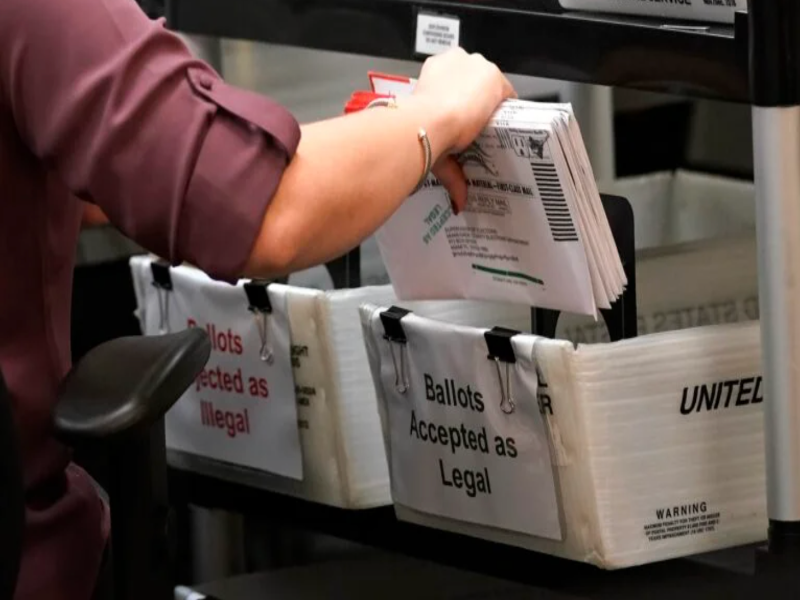- The Mauritian Ministry of ICT and police paused AFRINIC’s private board election despite court oversight.
- Experts caution that the intervention may set a troubling precedent for government power over private entities.
How the scandal unfolded during the 2025 AFRINIC election
During the 23 June 2025 board election held in Mauritius, a member of AFRINIC’s election committee reportedly breached confidentiality by removing a Power of Attorney (PoA) from the ballot room. According to reports, this person then contacted a resource holder directly. Election bylaws clearly prohibit this behaviour, yet it occurred in full view of other committee members.
This breach was one among several cited for halting the election. Simon Davenport KC, chair of the Nominating Committee, suspended proceedings after internal staff confirmed that ballots and proxy documents had been mishandled. Shortly after suspension, the court-appointed receiver, Gowtamsingh Dabee, annulled the vote pending a fresh election by 30 September.
Bylaws broken in full view of the committee
AFRINIC bylaws mandate strict confidentiality and non-disclosure by election committee members. Clause 4.6 states that members must sign a nondisclosure agreement before handling ballots. By removing a PoA and contacting a resource holder, the committee member broke this agreement.
Additionally, the improper removal and alleged disappearance of PoA documentation undermines fair proxy voting. ISPA South Africa reported that some proxies were “mysteriously missing” from records, and in other cases more than 800 proxies were submitted for a membership database of fewer than 2,400.
Staff intervention triggered by proxy confusion
Insiders say confusion over proxy legitimacy prompted the staff member’s actions. An AFRINIC source noted that when challenged, the person contacted a resource holder who subsequently denied granting the PoA.
However, critics argue that suspending the entire process over one incident was disproportionate. No public evidence has been released to suggest widespread tampering or fraud—though ICANN and ISPA have raised alarm over possible irregularities.
Legal experts call breach a threat to governance
Legal expert Professor Susanna Habti at the University of Cape Town says: “Removing ballots from the room and contacting resource holders directly is a serious breach of process, and fundamentally undermines election transparency.” She warns that such actions, if left unchecked, weaken institutional credibility.
ICANN’s president Kurt-Erik Lindqvist accused AFRINIC of violating its own rules and warned of compliance review or sanctions unless a fully transparent recount is conducted.
Outrage and demands for transparency from the community
The suspension and annulment drew immediate concern. ISPA South Africa demanded publication of proxy lists and stricter authentication for in-person voting.
AFRINIC’s receiver Gowtamsingh Dabee pledged to rebuild processes: “Our shared priority is upholding transparency, fairness and the best interests of AFRINIC and its members,” he said. He immediately petitioned the Supreme Court for a new election under stricter oversight.
AFRINIC’s credibility and global trust at risk
Loss of election integrity risks broader confidence in its governance. If the root causes are not dealt with transparently, ICANN could escalate a compliance review or even transfer AFRINIC’s responsibilities to another registry.
Steps needed to restore trust in AFRINIC’s election process
To move forward, AFRINIC must not only reform its procedures but also publish the full results of the annulled election. Transparency is essential. Releasing the original vote count and a verified list of proxy records would show a genuine commitment to accountability. It would also help rebuild confidence among members, many of whom remain uncertain about what took place behind closed doors. Publicly sharing these details is the first step in demonstrating that AFRINIC respects its own rules—and the trust of the community. Without openness about what went wrong, future reforms will lack credibility, and the upcoming election may face similar doubts.
FAQs
- What rule did staff break by removing the PoA?
They violated Clause 4.6 of AFRINIC’s election bylaws, which requires confidentiality and nondisclosure by election committee members. - Why did the election get suspended after one PoA incident?
Officials feared larger proxy-related issues. Though disruption was disproportionate, it led to annulment by the court-appointed receiver. - Who raised the alarm over violations?
ISPA South Africa and ICANN both alerted authorities. ICANN warned of compliance review while ISPA filed a criminal complaint and called for proxy transparency. - What might happen if AFRINIC fails to rebuild confidence?
ICANN could sanction AFRINIC or even shift African IP number management to another RIR, risking instability in regional internet coordination. - When will the next election take place?
The Supreme Court authorised a fresh election to be completed by 30 September 2025.

